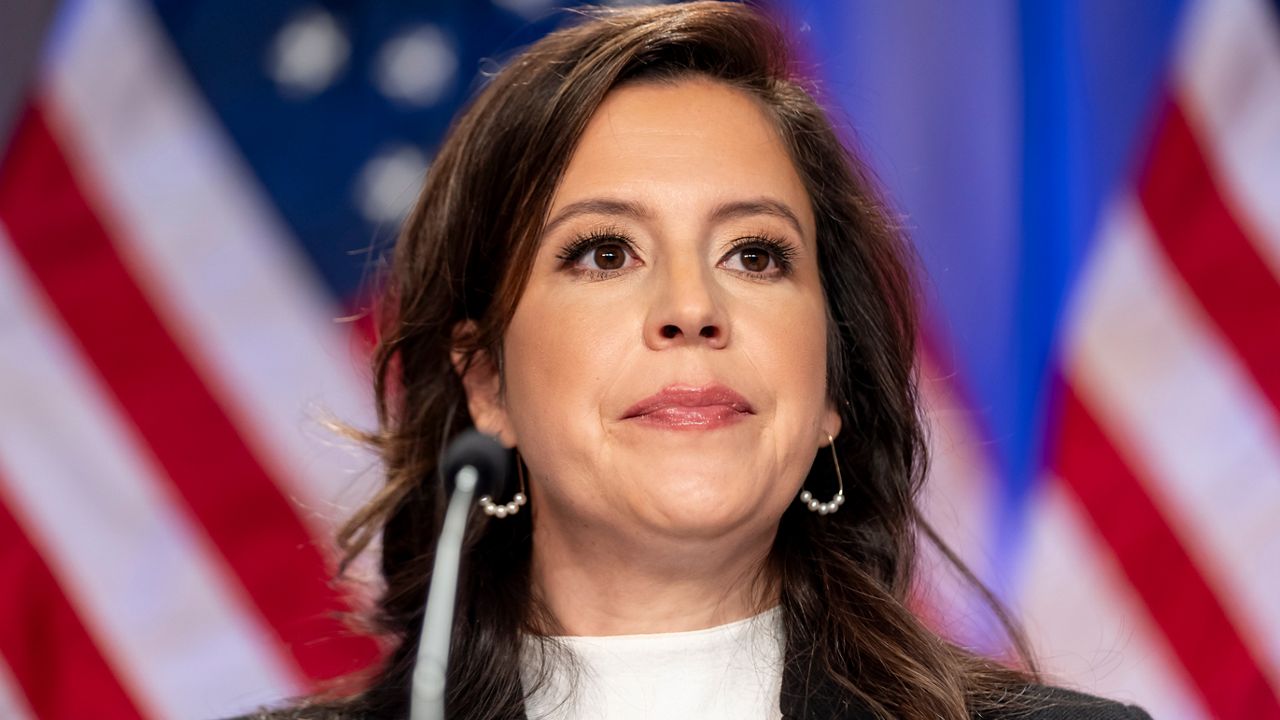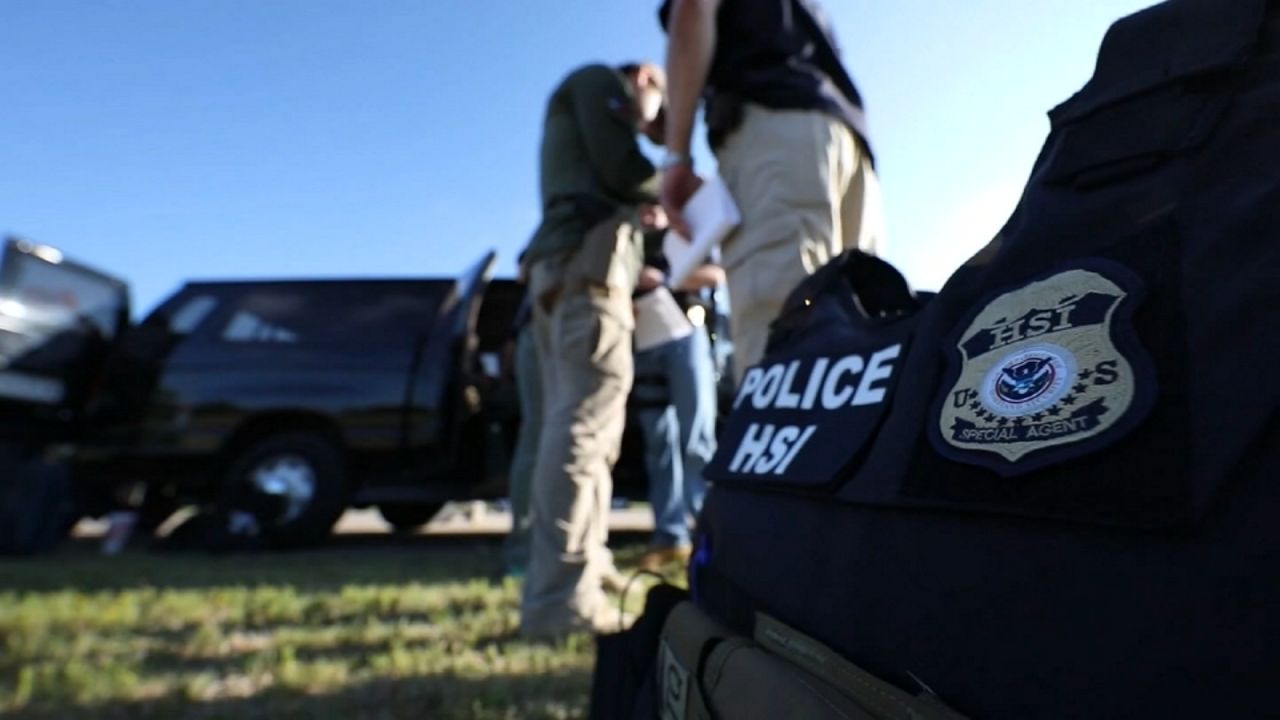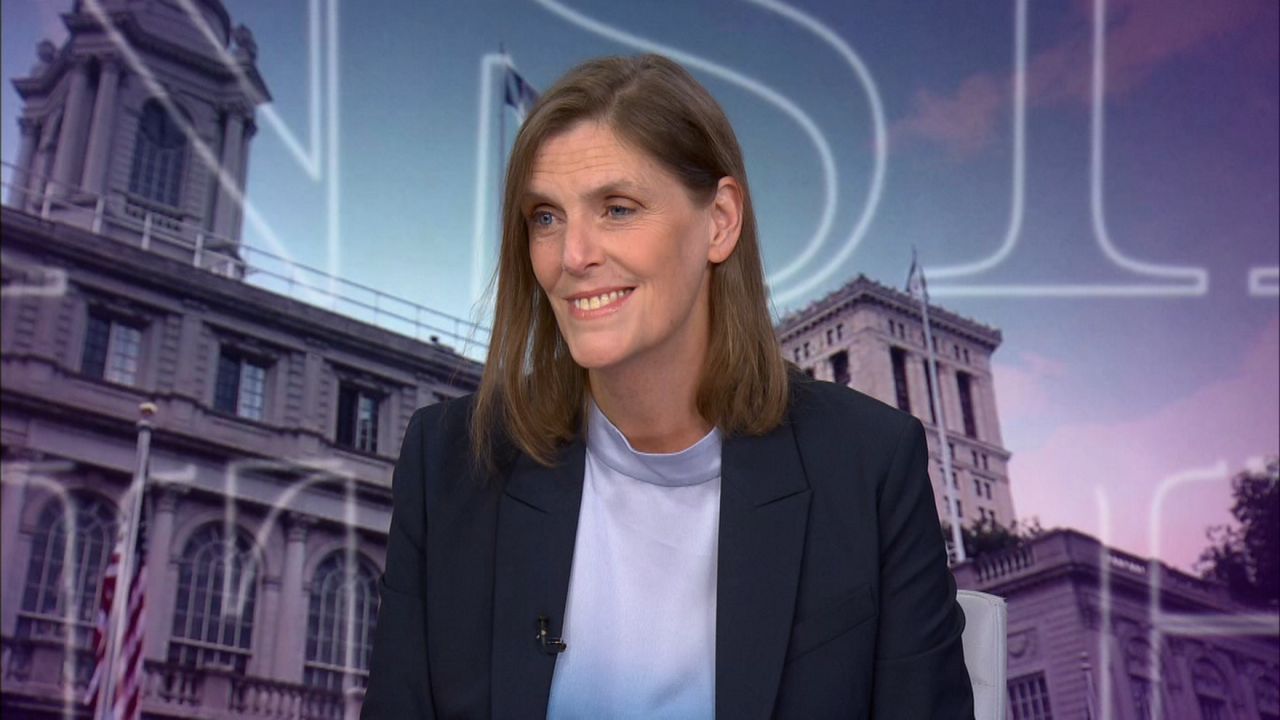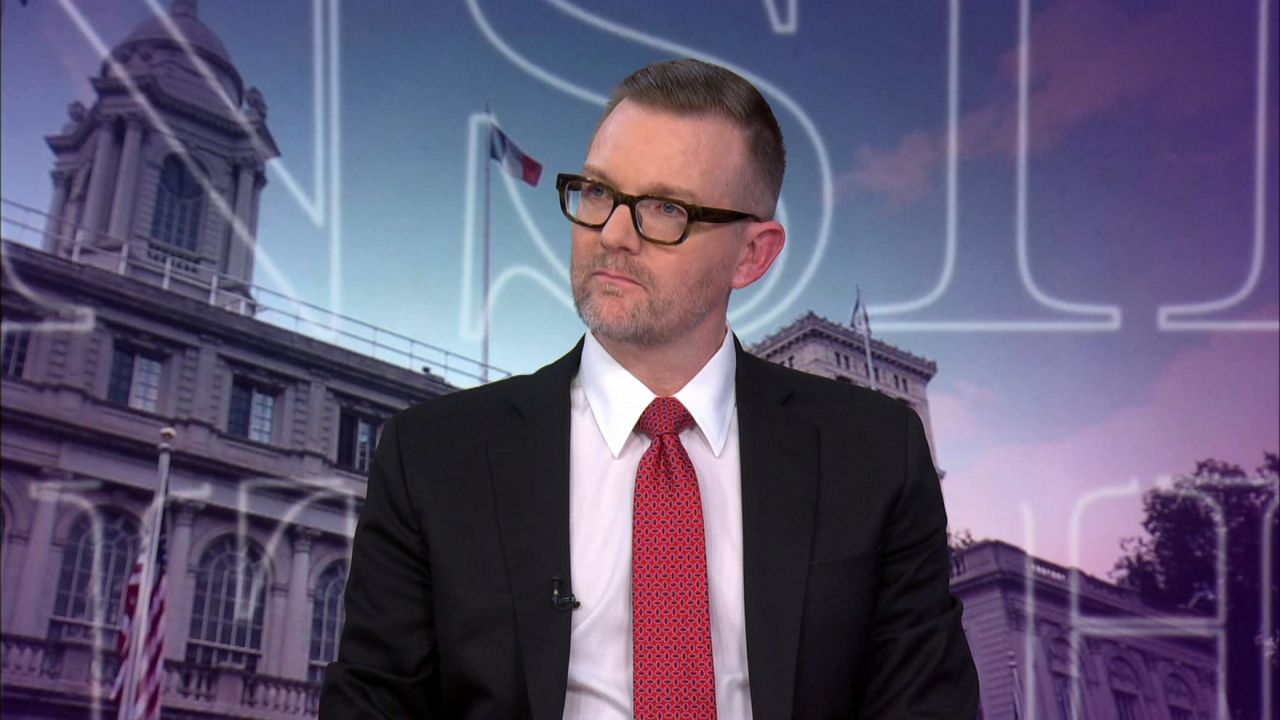The NYPD is heading into the fall with a new leadership team for the department’s new police commissioner, Edward Caban.
But there’s one consistent presence looming over the NYPD — Mayor Eric Adams, the retired captain and transit cop.
What You Need To Know
- The new police commissioner, Edward Caban, has a new leadership team
- Some retired police see micromanagement of the NYPD from Mayor Eric Adams
- Adams was a transit cop and NYPD captain before he went into politics
Adams’ first police commissioner, Keechant Sewell, resigned in June after 18 months. It was believed that she was frustrated with policing decisions were run through City Hall, according to multiple reports.
“It’s almost as if it’s micromanaged at a level that the police department has never seen before, coming from Gracie Mansion,” Joseph Giacalone, a retired NYPD sergeant and professor at John Jay College.
NY1 spoke to several sources with NYPD experience to discuss Adams’ management of the department.
“Micromanagement is never a good thing in the police department because they have to deal with a lot of analysis, they have to deal with a lot of data, they have to deal with deployment of your personnel,” Giacalone said.
Micromanagement — or, as one source put it, demanding accountability — is ascribed to Adams’ familiarity with the department’s inner workings.
Then, there are the alliances he’s formed inside the NYPD, like Chief of Department Jeffrey Maddrey, and outside of the NYPD, like Deputy Mayor for Public Safety Philip Banks, who was a former high-ranking police official.
“He has a much more intimate understanding of all the nuances of policing and police culture which he can use to his advantage when he is implementing policies, figuring out personnel changes,” Keith Taylor, a retired NYPD official who teaches at John Jay, said.
Even personnel like uniformed officers, as he did once during a parade when he saw officers standing too close together.
In a statement, a City Hall spokesperson said: ”The mayor makes no secret of the fact that he leads from the front, and, as with all city agencies, he continues to work collaboratively with Police Commissioner Caban and his leadership team to build on the public safety gains of the last 20 months — ensuring New York City remains the safest big city in America.”
As a politician and an officer with an activist bent, Adams had called out cases of aggressive policing and police brutality.
But as mayor, sources describe him as a steadfast defender of officers.
As one police source told NY1, policing is not black and white, and that, “when it’s gray, he backs the blue.”
“I will support our police and we will make our city a safe city,” Adams said in a speech marking his first 100 days in office.
It’s a similar sentiment to another law-enforcement mayor: Rudy Giuliani.
“My message is to support the police and give them the benefit of the doubt,” Giuliani said in 1999, in response to the police fatally shooting of a man holding a hammer in Borough Park.
It’s a message that sources said the rank-and-file officers hear.
But retired NYPD Lieutenant John Macari pointed out that officers are still working under new laws and policies from more liberal lawmakers and prosecutors.
“I believe that he’s following in Rudy Giuliani’s footsteps under a very tight-knit progressive legislation that he pushed during his time as a state senator, while he was very critical of the NYPD,” Macari said.
Still, sources said Adams’ policing strategy comes with a cost — in increased overtime and the physical demands of a job at a department struggling with recruitment and retention.









